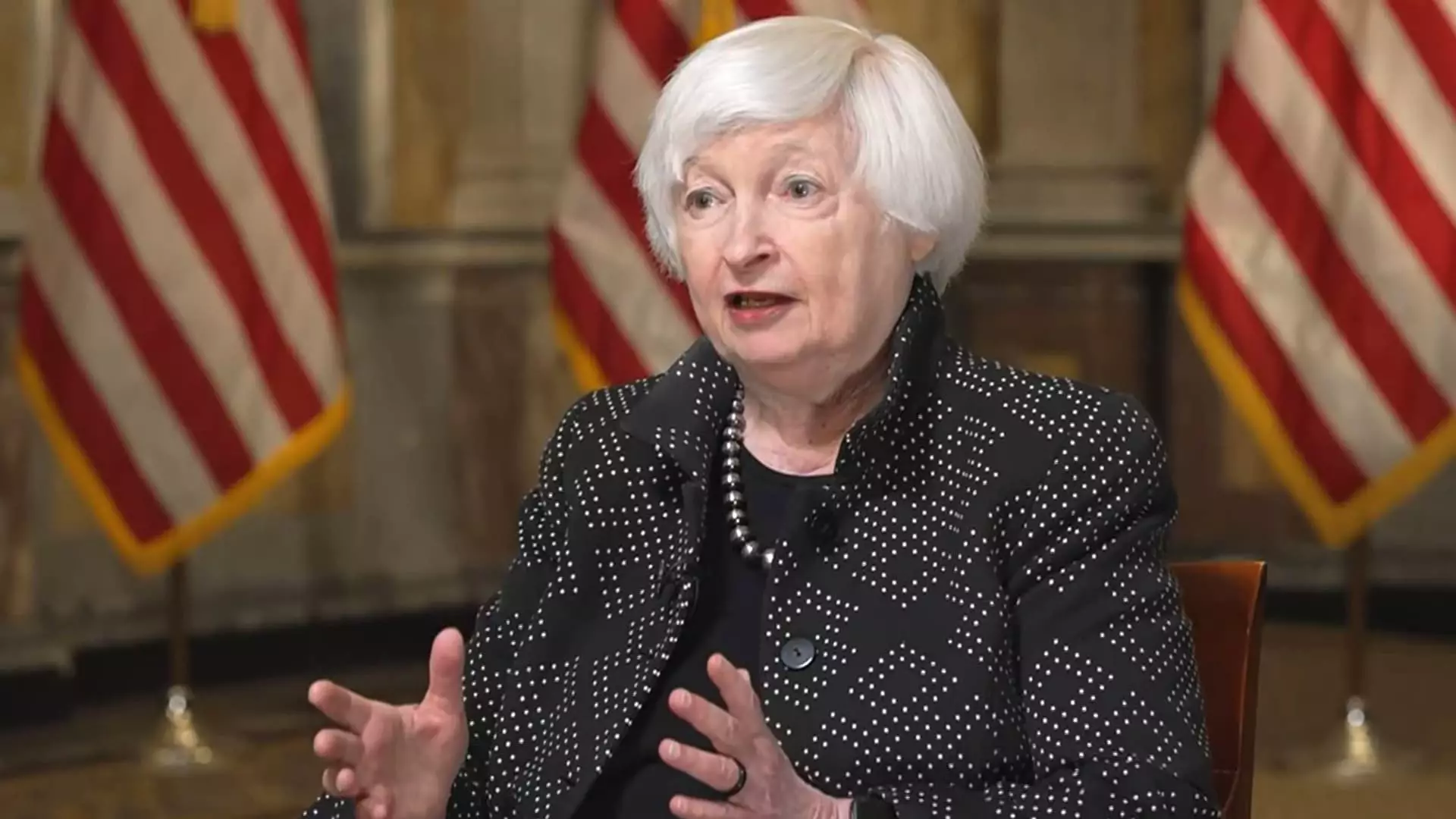In a recent interview, Treasury Secretary Janet Yellen shared insights on the economic effects of the stimulus measures enacted under President Joe Biden’s administration during the Covid-19 pandemic. Yellen acknowledged that the $1.9 trillion relief package, while essential for immediate crisis management, may have contributed “a little bit” to the inflationary pressures that have emerged since then. However, she emphasized that the predominant cause of the inflation crisis was rooted in supply chain disruptions triggered by the pandemic itself. This highlights the intricate balance policymakers must strike between providing necessary economic relief and managing long-term fiscal health.
Yellen’s assertion implies that while government spending plays a role in shaping economic conditions, the prevailing inflation was largely influenced by external factors. The supply chain disruptions noted by Yellen are a stark reminder of how interconnected and fragile the global marketplace can be. As critical goods became scarce, prices rose dramatically, showcasing the limitations of monetary policy in addressing supply-side challenges. This situation compels us to reconsider how governments respond to crises—not just in terms of immediate relief but also in considering the potential downstream economic consequences of those decisions.
The Necessity of Relief During a Crisis
Despite the inflationary side effects, Yellen maintained that the relief measures were a necessary intervention during a time of unprecedented suffering and economic instability. With the pandemic causing significant unemployment and loss of life, the argument for swift action to support the economy is compelling. Yellen’s reluctance to express regrets about the stimulus package reflects a broader recognition among economic leaders that immediate needs sometimes supersede long-term concerns.
By framing the discussion in terms of crisis response, Yellen effectively shifts the focus back to the urgency of the situation when Biden took office. The dire circumstances demanded decisive action to alleviate the public suffering, an argument that resounds with many Americans who lived through that turbulent period. However, this presents an important consideration for policymakers moving forward: finding a sustainable path to recovery that anticipates future challenges while avoiding overstimulation of an already recovering economy.
Challenges of Deficit Management and Future Guidance
Another salient point raised by Yellen relates to the Biden administration’s commitment to deficit reduction amidst rising national deficits, which have soared to $1.8 trillion. This contradiction highlights the complexities involved in fiscal policymaking. While Yellen acknowledged the necessity of increased spending, she also pointed to historically low discretionary spending levels as a mitigating factor against rising debt. This duality presents a critical challenge; how can the government balance immediate economic needs with the necessity to maintain financial stability in the long run?
Yellen’s skepticism regarding proposed government efficiency measures led by figures such as Elon Musk indicates the intricacies behind spending cuts. She noted that escalating defense expenditures and the popularity of mandatory spending programs make drastic cuts impractical. This realism serves as a crucial reminder—that any strategy to alleviate the deficit must find a middle ground that resonates with public sentiment and maintains essential services.
As a seasoned Treasury Secretary departing her post, Yellen leaves behind a complex legacy shaped by her responses to the Covid-19 crisis. Her successor, Scott Bessent, inherits not only a challenging fiscal landscape but also the responsibility of navigating the intricacies of economic recovery in a post-pandemic world. The dialogue about fiscal responsibility and stimulus efforts will be pivotal moving forward, underscoring the importance of developing frameworks that can adapt to emerging economic realities while being grounded in the lessons learned from this unprecedented crisis.

